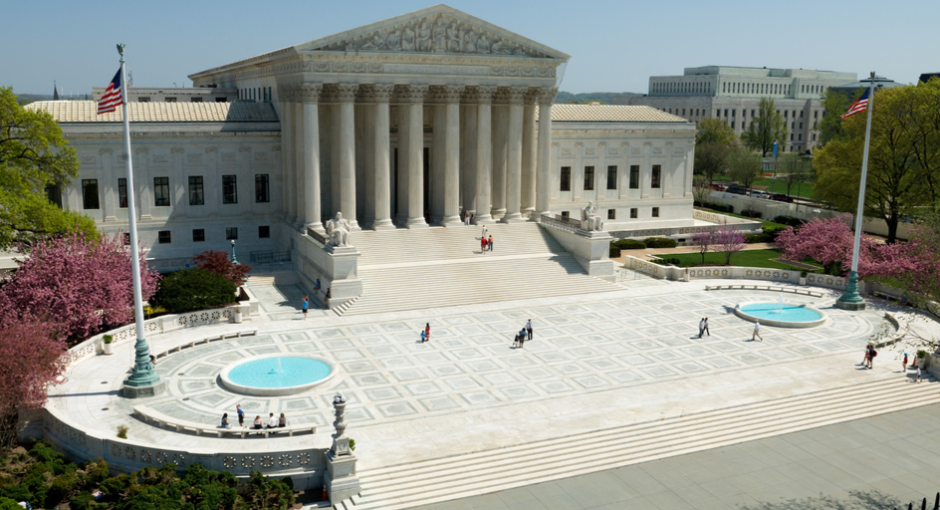Yesterday, the U.S. Supreme Court ruled that huge cuts in 340B hospitals’ Medicare Part B drug reimbursement in 2018 and 2019 were unlawful. It marked the end of Phase 1 of the debate over the cuts.
Phase 2 is gearing up. It will be played out in a federal appeals court in Washington, D.C., a federal district court in Washington, and the pages of the Federal Register.
Federal Appeals Court Activity
As soon as early July, proceedings in the case that the Supreme Court decided yesterday will resume in the U.S. Court of Appeals for the District of Columbia Circuit. The Supreme Court reversed the appeals court’s July 2020 decision that the nearly 30% payment cut was based on a reasonable interpretation of the Medicare statute. The high court sent the case back to the appeals court for further action consistent with its opinion.
The high court’s ruling applied to the payment cut’s first two years only. It will be up to the appeals court (or the lower court whose decision it reversed) to decide what relief to grant to American Hospital Association, Association of American Medical Colleges, America’s Essential Hospitals, and the three health systems that jointly sued the U.S. Center for Medicare & Medicaid Services (CMS) over the cuts in 2018 and 2019.
CMS estimates that the cuts to 340B hospitals totaled about $1.6 billion a year. The three hospital groups (acting on behalf of all 340B hospitals affected by the cuts) and three health systems want to be repaid the difference between what they were paid (average sales price minus 2.5%) and what they would have been paid (ASP plus 6%) if CMS had kept the payment methodology it used in 2017.
Federal District Court Activity
Meanwhile, activity will resume in mid-July in U.S. District Court for the District of Columbia in five legal actions that were stayed pending the outcome of the Supreme Court’s decision. These lawsuits were filed by a total of 173 hospitals that participate in 340B. The cases are related to but independent of the Supreme Court case.
Like the three hospital groups and three health systems that filed the case that the Supreme Court decided yesterday, these five cases challenge the legality of CMS’s Part B payment cuts in 2018 and 2019.
Unlike the Supreme Court case, these five cases also collectively contest the legality of the reimbursement cuts in 2020, 2021, and 2022. Yesterday’s Supreme Court decision was silent about those years’ cuts.
CMS partly based its 2021 and 2022 reimbursement cuts on a controversial survey of 340B hospitals’ average acquisition costs for drugs bought during the fourth quarter of 2018 and the first quarter of 2019 and billed to Part B. The survey occurred at an incredibly challenging time for 340B hospitals, just weeks after the COVID-19 pandemic began to overwhelm many hospitals. Partly due to the timing of the survey (April 24, 2020, through May 15, 2020) and concerns that the survey was deeply flawed, only 7% of hospitals submitted comprehensive responses, according to Mintz law firm.
Whether the survey satisfied the requirements of the Medicare act was not a factor in yesterday’s Supreme Court decision. It could be a huge factor in these five cases.
All five cases are assigned to U.S. District Judge Rudolph Contreras—the same judge who in 2018 ruled in favor of the three hospital groups and three health systems in the case that the Supreme Court decided yesterday.
Contreras is expected to order lawyers for the 173 hospitals and the federal government in the five cases to file joint status reports on how the cases should proceed now that the Supreme Court has spoken.
The five cases are Advocate Christ Medical Center v. Becerra, Athens-Limestone Hospital v. Azar, The Board of Trustees of the University of Alabama v. Becerra, University of Kansas Hospital Authority v. Becerra, and Vanderbilt University Medical Center v. Becerra.
Upcoming CY 2023 OPPS Rule
Sometime in July, CMS is expected to publish a proposed rule for notice and comment in the Federal Register describing how it plans to calculate Part B drug reimbursement for hospitals next year under the Outpatient Prospective Payment System (OPPS). It has been under White House Office of Management and Budget review since May 4. CMS customarily releases its OPPS final rule for the coming year in early November. 340B hospital groups are once again calling on CMS to abandon the cuts.
CMS likely will address yesterday’s Supreme Court decision in the forthcoming proposed rule. There has been no sign to date that CMS will propose changing how it has calculated 340B hospitals’ Part B drug reimbursement for the past five years.


